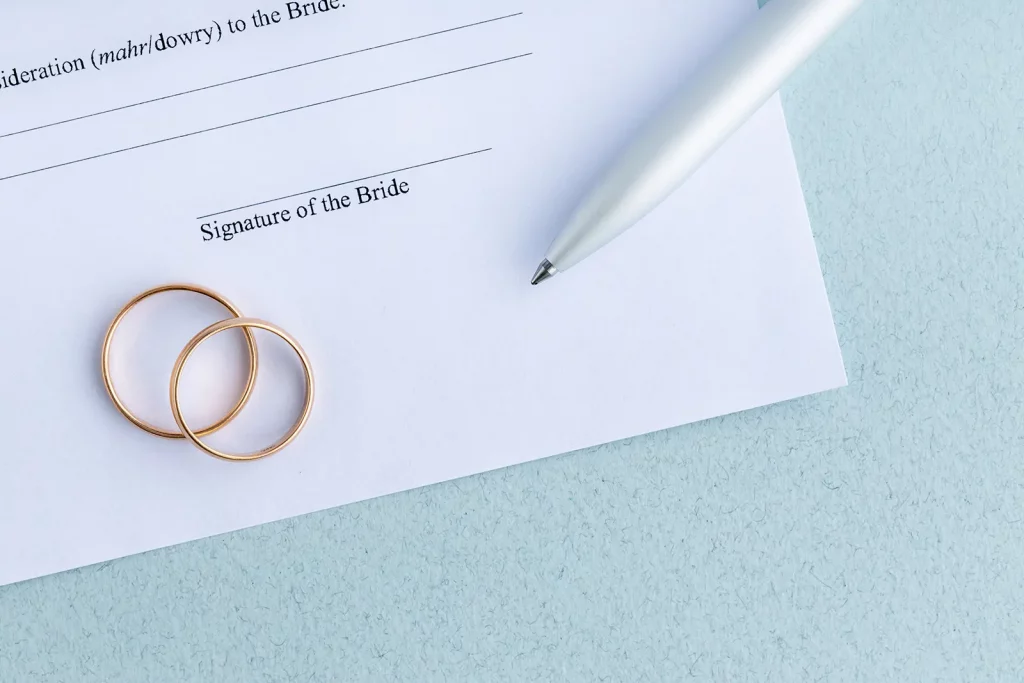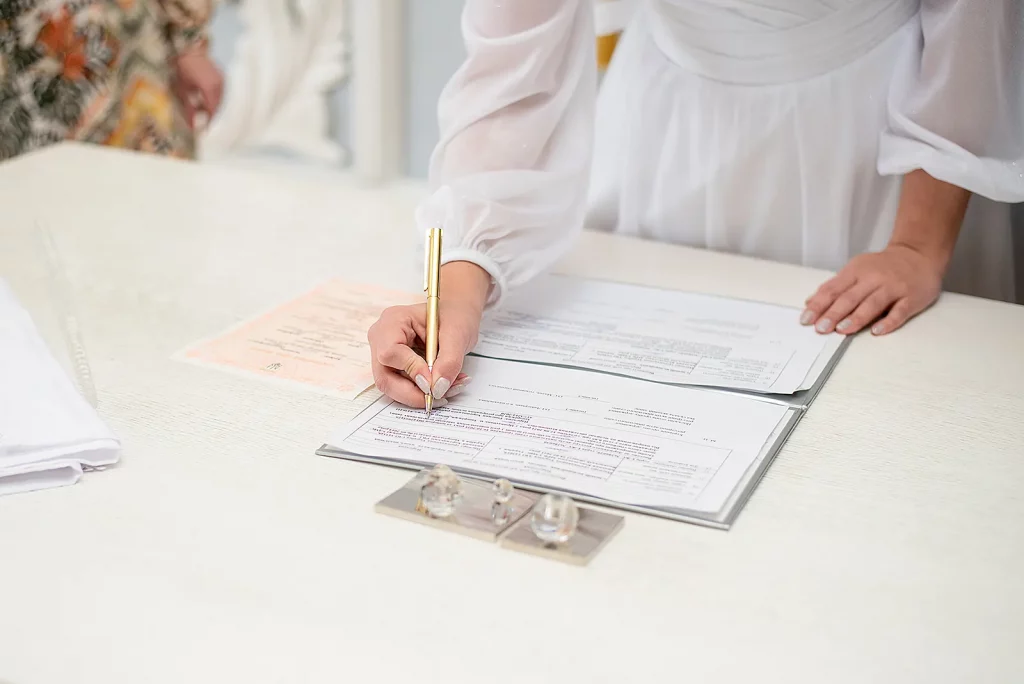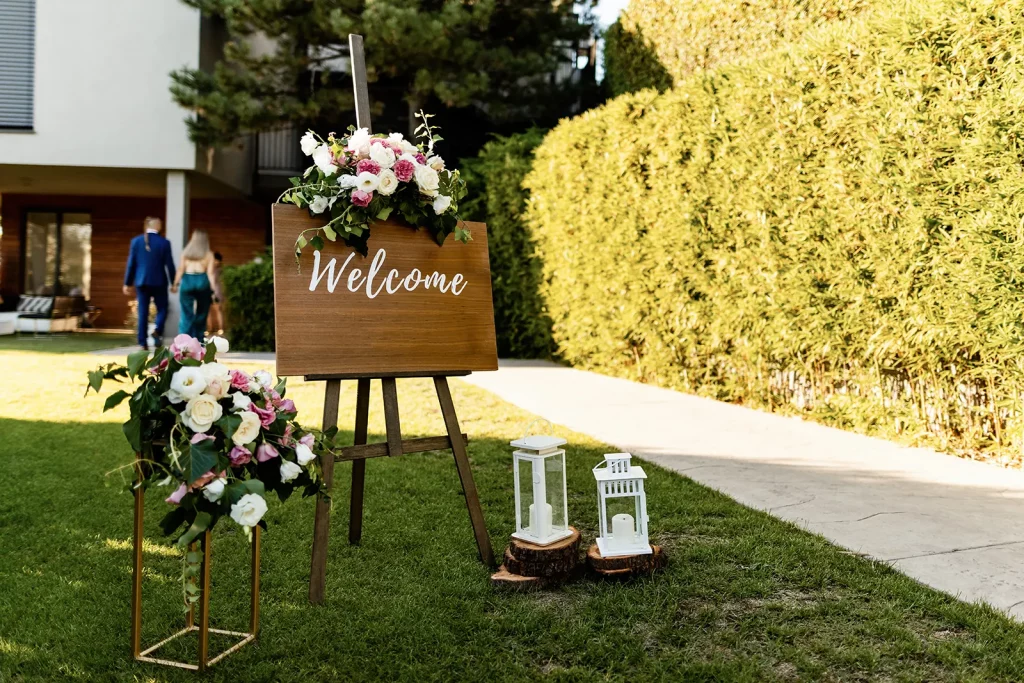Wedding Notary
What are the Qualifications to be a Notary Wedding Officiant?
Currently, only a handful of states authorize notaries to perform weddings as part of their official duties. These states are Florida, Montana, Tennessee, Maine, Nevada, and South Carolina. As long as you are licensed and commissioned in one of the states listed above, you are qualified to add “wedding officiant” as another service you offer to your clients.
Notaries in other states are finding ways to add “wedding officiant” to their list of services. One way is becoming an ordained minister. Doing a little research online could help you become ordained in your commissioned state. Read more on the types of wedding officiants here.

Responsibilities of the Wedding Notary
For a notary to serve as a wedding officiant is of great honor and one of the most important roles you will play. Even if it is your first time performing a wedding ceremony, you can help create a perfect day with the proper planning and by educating yourself about the couple’s wishes and requirements.
The first step of preparation for the ceremony is to arrange a meeting with the couple to gather information about their expectations for their big day. During the consultation, you should confirm the legal requirements for the ceremony. The couple must provide this completed form before you can perform the ceremony. The marriage license should be valid, and both partners should have identification.
Here are some tips for creating a well-planned ceremony:
- If the couple has written vows, you may want to review them beforehand.
- Practice your role and speech until you become familiar and comfortable with it.
- Have a copy available and if need be, check it with the couple, so they know what to expect during the ceremony.
- You should also practice the ceremony with the couple beforehand, ensuring a smoother process on the actual ceremony date.
- Open the ceremony with an introduction that coincides with the couple’s values, religious beliefs, and standards. For example, determine if the ceremony is religious or non-religious.
- You’ll guide the couple by exchanging rings. You can use script or vows. Ask the couple if they agree to the obligations of marriage and then ask each to place the ring on the other’s finger. Next, pronounce the couple as husband and wife.
What Comes Next?
After the ceremony, the marriage certificate should be filed and submitted to the town clerk’s office typically within 7-15 days. The notary must sign the certificate as the officiant and include all required information. The certificate should be signed before two witnesses, and the notary does not count as one.

Lastly, you should record the marriage ceremony in your wedding notary journal. Include the date, the couple’s names, and the ceremony’s location.
What is the Dress Code for a Wedding Officiant?
The proper dress code for a wedding officiant is to stick to solid colors such as beige, black, or neutral tones, whether you are a notary or not. Brighter colors might clash with the color theme of the bride and groom, especially during photo taking and video recordings.
You should also consider the formality of the ceremony. For example, if the wedding takes place inside a church or temple, more formal attire would be appropriate. A more informal attire may be the best choice if the wedding takes place outside, such as near a beach or lake. It’s usually helpful to know what the wedding party intends to wear and blend your attire accordingly.
Steer clear of pattern attire which tends to stand out in photos. Your selection of clothing should be comfortable and make you feel confident. Your job will be the center of attention and the most important highlight of the day. Some couples have a strong preference about what the officiant wears and may want to confirm before the wedding day. Be sure to ask about the formality of the ceremony during the planning process.
How to Advertise Wedding Officiant Services?
Advertising your service as a wedding officiant is very similar to finding general notary work. You should list your wedding officiant services on any business notary as an added service. Post consistently on your social media profile and pages, create a business page with Google, and share with your extended network.
Sometimes just letting people know that you are a notary can lead to a much deeper conversation about all of the services you provide as a notary. Networking at corporate and business events where there is an opportunity to meet new people can effectively get the word out.
Always check with your state laws on specific policies and procedures to become a wedding officiant as a wedding notary.
Did you enjoy this blog? Check out our blog on How to Notarize a Power of Attorney (POA)

